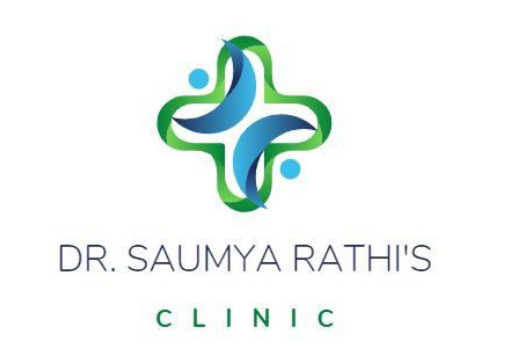Chronic Ailments Treatment in Delhi
Personalized treatment options for chronic diseases using precision cohort analytics by Dr. Saumya Rathi.
What are Chronic Ailments?
Chronic sickness is a long-term ailment that might last months or years. It has the potential to inflict discomfort, incapacity, and even death. Cancer, diabetes, high blood pressure, heart disease, and arthritis are just some chronic conditions.
People with a chronic disease may find it difficult to characterize their condition. Epilepsy, cancer, multiple sclerosis, and arthritis are some of the most frequent needs. We discuss these diseases with our friends and family members. Someone may have them for the rest of their lives. These disorders do not imply that there is nothing you can do to treat them.
Chronic illness patients frequently get many types of medication to control their discomfort and delay the progression of their disease.
Different Types of Chronic Ailments Treated by Dr. Saumya in New Delhi

Hypertension
High blood pressure is a frequent disorder affecting the arteries of the body. It is also known as hypertension. When you have high blood pressure, the force of the blood pressing against the artery walls is always too strong. To pump blood, the heart has to work harder.
Millimeters of mercury (mm Hg) are used to measure blood pressure. Hypertension is defined as a blood pressure value of 130/80 millimeters of mercury (mm Hg) or greater.

Diabetes
Diabetes mellitus is a collection of disorders that affect how the body utilizes glucose (blood sugar). Glucose is a vital source of energy for the muscles and tissues’ cells. It is also the primary source of fuel for the brain.
The primary cause of diabetes varies depending on the kind. However, diabetes, regardless of the kind, can result in an excess of sugar in the blood. Too much sugar in the bloodstream can cause major health issues.

Hypothyroidism
Hypothyroidism is a frequent disorder in which the thyroid produces and releases insufficient thyroid hormone into the circulation. This causes your metabolism to slow.
Hypothyroidism, also known as underactive thyroid, can cause fatigue, weight gain, and an inability to tolerate cold temperatures. Hormone replacement therapy is the primary treatment for hypothyroidism.
HYPERTENSION

Symptoms
Even when blood pressure measurements reach dangerously high levels, most persons with high blood pressure have no symptoms. High blood pressure can exist for years without causing any symptoms.
A few high blood pressure patients may have:
Headaches
Breathing difficulty
Nosebleeds
These symptoms, however, are not specific. They normally do not appear until high blood pressure has progressed to a severe or life-threatening level.

Treatment
Changing your lifestyle can help control and manage high blood pressure. The type of medicine used to treat hypertension depends on your overall health and how high your blood pressure is.
Medicines used to treat high blood pressure include:
Water pills (diuretics).
Angiotensin-converting enzyme (ACE) inhibitors.
Angiotensin II receptor blockers (ARBs).
Calcium channel blockers.
Alpha blockers.
Alpha-beta blockers.
Beta blockers.
Aldosterone antagonists.
Renin inhibitors.
Vasodilators.
Central-acting agents.

DIABETES

Symptoms
Diabetes symptoms are determined by your blood sugar level. Some people may not experience symptoms, especially if they have prediabetes, gestational diabetes, or type 2 diabetes. Symptoms of type 1 diabetes tend to appear rapidly and are more severe.
Type 1 diabetes and type 2 diabetic symptoms include:
I’m feeling thirstier than normal.
Urinating often.
Losing weight without making an effort.
Ketones are present in the urine.
Feeling irritated or experiencing other mood swings.
Having hazy eyesight.
I’m suffering with slow-healing sores.
Infections such as gum, skin, and vaginal infections are common.
Diabetes type 1
Diabetes type 1 can strike at any age. However, it frequently begins in infancy or adolescence. The more prevalent kind of diabetes,
Diabetes type 2
type 2, can occur at any age. People over the age of 40 are more likely to develop type 2 diabetes. However, the prevalence of type 2 diabetes in youngsters is rising.
Treatments
Healthy eating
Physical activity
Insulin injections or the use of an insulin pump, regular blood sugar tests, and carbohydrate counting are all part of type 1 diabetes treatment. Pancreas or islet cell transplantation may be a possibility for certain persons with type 1 diabetes.
Treatment for type 2 diabetes consists mostly on lifestyle adjustments, blood sugar monitoring, and the use of oral diabetic medications, insulin, or both.
HYPOTHYROIDISM

Symptoms
Hypothyroidism occurs when the thyroid gland fails to produce adequate thyroid hormone. This illness is also known as underactive thyroid. In its early stages, hypothyroidism may not show any symptoms. Hypothyroidism symptoms may include:
Tiredness
More sensitivity to cold.
Constipation
Dry Skin
Weight Gain
Puffy Face
Hoarse Voice
Coarse hair and skin
Muscle Weakness
Muscle aches, tenderness and stiffness.
Menstrual cycles that are heavier than usual or irregular.
Thinning Hair
Slowed heart rate, also called bradycardia
Depression
Memory Problems
Anyone, even newborns, can develop hypothyroidism. Most newborns born without a thyroid gland or with a thyroid gland that does not function properly do not exhibit symptoms immediately away. However, if hypothyroidism is not detected and treated, symptoms emerge.

Treatments
Treatment for hypothyroidism usually includes taking the thyroid hormone medicine levothyroxine (Levo-T, Synthroid, others) every day. This medicine is taken by mouth. It returns hormone levels to a healthy range, eliminating symptoms of hypothyroidism.
You’ll likely start to feel better one or two weeks after you begin treatment. Treatment with levothyroxine likely will be lifelong. Because the dosage you need may change, your health care provider may check your TSH level every year.
Dr. Saumya's Clinic is Happy to Launch Exclusive Packages for it's Patients at Reduced Prices
Key Features Include:
Priority appointment
3 days free follow up
Emergency consultation
Blood pressure and blood sugar monitoring
General health checkup
Emergency treatment
Minor wound dressings
Home collection of samples
Medical/Fitness Certificate
Online consultation
Individual Package
1 month, 4 consultations,
upto 2 patients @ Rs 2000/-
Family Package
3 months, 12 consultations,
upto 4 patients @ Rs 6000/-
Contact +91 7291872918 for more details.
Inaugural offer: If you are not able to consume your full quota in due time, we will give you 15 days more to consume your consultations.
Begin Your Health Journey
With Dr. Saumya
Convenient scheduling and immediate medical attention at your service.

This clinic takes care of every patient with maximum care, support, and safety precautions. Dr. Saumya has a decade of expertise in treating fevers, managing diabetes, and controlling hypertension.
Treatments
Location
13/11, Vyas Marg, Block 13, Shakti Nagar, North Delhi, 110007
10:00 AM - 01:00 PM
05:00 PM - 08:00 PM
© Copyright 2024 All Right Reserved Saumya Rathi Clinic
Privacy Policy | Terms & Conditions
